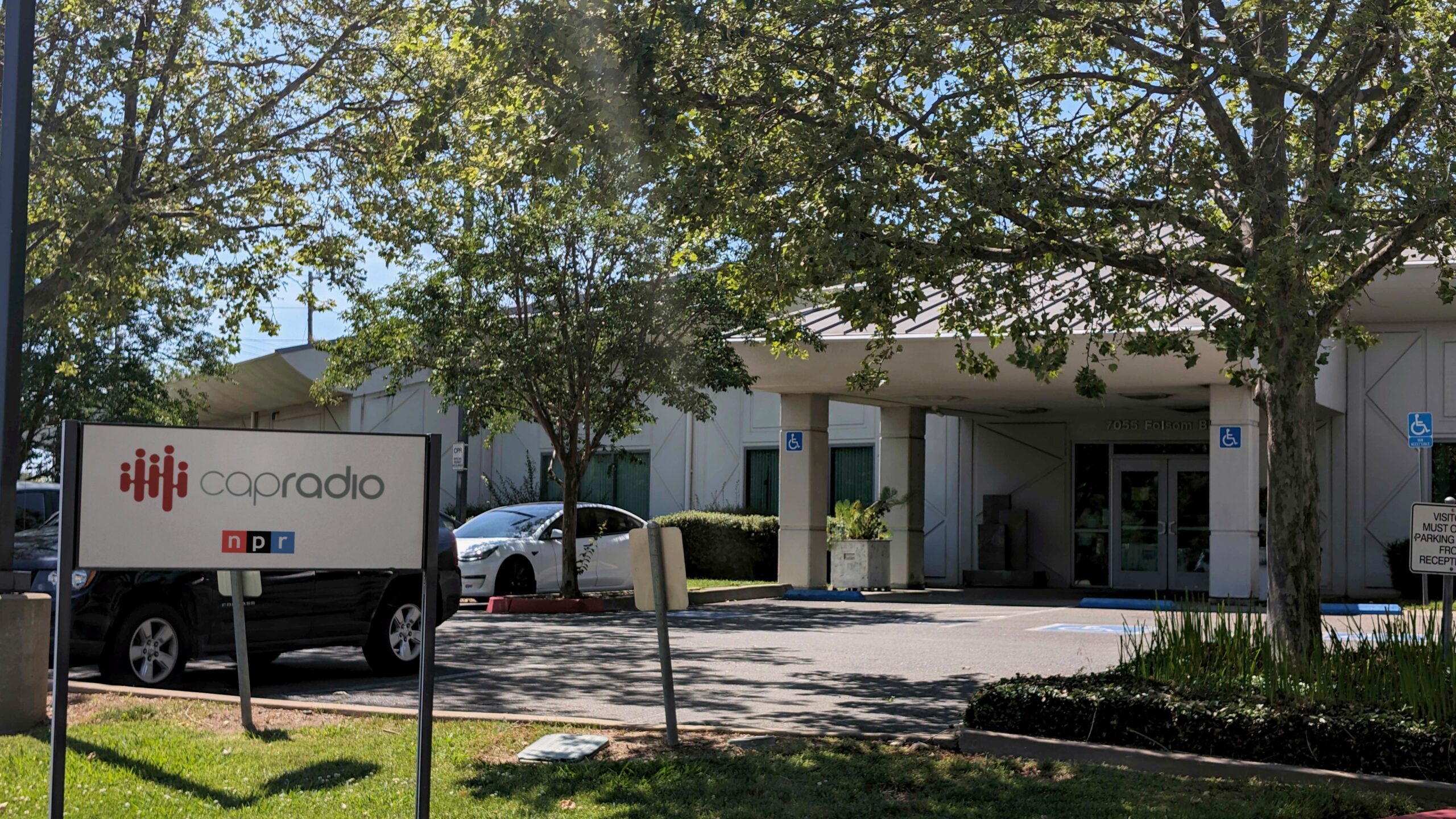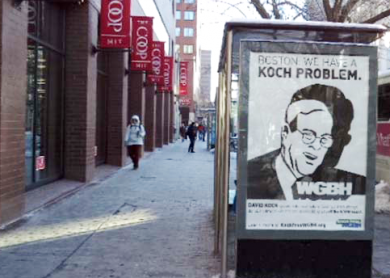Closure, finally, in sale of Palm Beach pubTV station

Staffers including new C.E.O. Don Sussman celebrate "the New WXEL" and its 30th anniversary, too. (Photo: WXEL.)
Eight years after the “For Sale” sign first went up on WXEL-TV/FM, the transaction resolving the future of pubcasting in Florida’s affluent Palm Beach region finally closed last month.
WXEL-TV, which split from its radio sibling in a 2011 sale to American Public Media Group’s Classical South Florida, is to be transferred to a nonprofit headed by the execs who have managed the station through years of uncertainty, as Barry University sought to end its involvement in public broadcasting.

Staffers including new C.E.O. Don Sussman (green-shirted at center) celebrate “the New WXEL” and its 30th anniversary, too. (Photo: WXEL.)
WXEL Public Broadcasting Corp., led by station President Don Sussman, C.E.O. Bernie Henneberg and Development V.P. Debra Tornaben, paid $1.4 million to Barry University to acquire the FCC license for the PBS outlet serving West Palm Beach. The deal was finalized on July 20, as the station celebrated 30 years on the air.
The transaction was not a traditional sale, Sussman said, but a merger with previous licensee Barry Telecommunications Inc., which was renamed and spun off from Barry University. “That’s a heck of a lot easier,” he said. “Asset purchase agreements can be inordinately complex.” State policymakers approved the sale in March before the license transfer proposal was submitted to the FCC.
The $1.4 million sale price covers reimbursement of WXEL’s debts to the university. Financing came through a loan facilitated by Public Radio Capital, the Colorado-based consultancy specializing in pubcasting signal expansion and preservation. WXEL plans to launch a capital campaign to pay off the five-year note “in as short a period as possible,” Sussman said.
Closure was a long time coming. WXEL went up for sale as a dual licensee in November 2004, and Barry negotiated a $5 million deal to transfer control of both the radio and TV stations to New York’s WNET in 2005. The sale proposal hit a snag under scrutiny at the FCC — specifically over commission rules governing local ownership. It stalled for three years at the commission and was finally withdrawn in 2008.
Deals pursued with the local school district and a community group, Community Broadcast Foundation of Palm Beach and the Treasure Coast, never reached a negotiated agreement.
Classical South Florida, a Fort Lauderdale–based subsidiary of American Public Media Group, acquired the radio operation in May 2011 for $3.85 million.
Richard Zaretsky, founder of the Community Broadcast Foundation, called the TV transaction “a great deal that should have been made eight years ago.” CBF was among the organizations that bid for both stations in 2005, but lost out to WNET. Zaretsky is especially pleased that the transaction meets the criteria written into his organization’s mission statement — preservation of locally controlled, locally served public television.
Although Sussman arrived at WXEL three years ago, about midway through WXEL’s extended ownership limbo, he also played a key role at the very beginning. As executive director of financial planning for WNET, he was a principal in the New York station’s bid for WXEL.
Late in 2010, shortly before the sale of WXEL-FM was announced, WXEL C.E.O. Bernie Henneberg approached officials at Barry to propose a management buyout, according to Sussman. The Barry board agreed. Public Radio Capital assisted in initial discussions, and brought in a New York–based nonprofit, FJC: A Foundation of Philanthropic Funds, for the loan.
Lenny Glickman, FJC c.e.o., said the foundation’s Agency Loan Fund is backed by donors and other nonprofit institutions who want to invest for the social good, “so their money goes to other charities.” Interest earned on the fund goes back into a pool that other nonprofits borrow from in loans ranging from $10,000 to $4 million.
FJC has been involved with several pubcasting deals in the past, according to Glickman, and was one of three lenders in Dallas pubcaster KERA’s 2009 purchase of 91.7 FM, the Triple A music station now broadcasting as KXT.
Despite the years of uncertainty over WXEL-TV’s future, its operating budget has “remained relatively flat,” around $4.5 million, Sussman said, and it’s been able to remain in good financial standing with PBS. But the staff of 27 employees is about half the size it had been as a dual-service operation.
“We have financial challenges, not unlike every other station,” he said. “We’re fortunate that Florida, which had zeroed out public broadcasting funding in the 2012 budget, has agreed to reinstate that for 2013. That was a major hit for every station.”
He anticipates a balanced budget for fiscal 2013, although uncertainty surrounding the sale has “crimped major giving.”
That should start to turn around once the new board is announced, expected by summer’s end.






